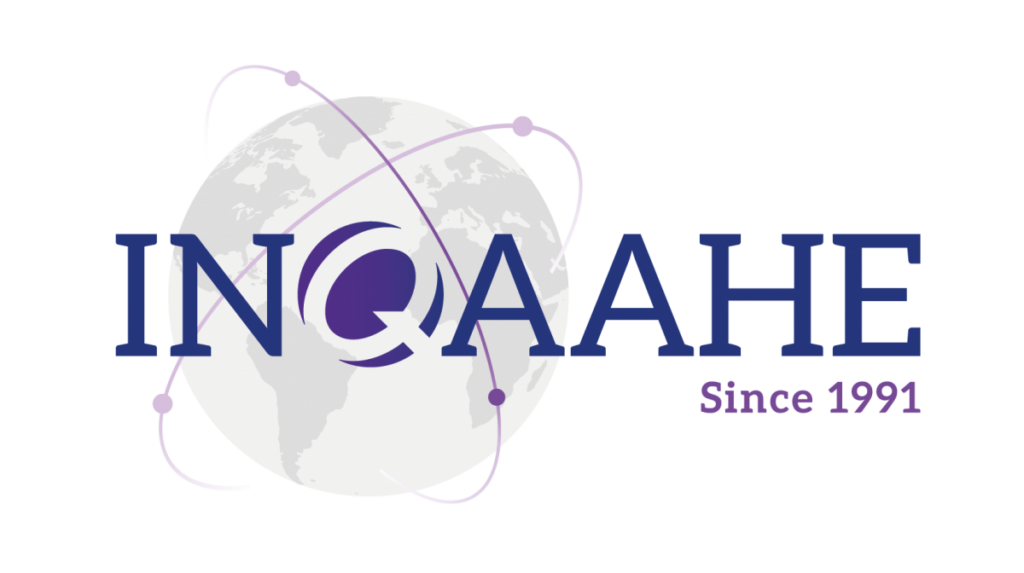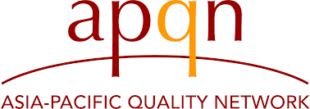International Quality Assurance Recognition of THE-ICE
INQAAHE
THE-ICE is proud to be a full member of the International Network for Quality Assurance Agencies in Higher Education (INQAAHE), joining in 2011 and actively engaging in its strategic activities since. INQAAHE was established in 1991 with only eight members – today the total membership exceeds 200.
The main purpose of INQAAHE is to collect and distribute information on the current and developing theory and practice in the assessment, improvement and maintenance of quality in higher education. By means of this information-sharing and otherwise, it is intended that INQAAHE should:
- promote good practices in the maintenance and improvement of quality in higher education;
- facilitate research into the practice of quality management in higher education and its effectiveness;
- be able to provide advice and expertise to assist the development of new quality assurance agencies;
- facilitate links between accrediting bodies especially insofar as they operate across national borders;
- assist members in determining the standards of institutions operating across national borders;
- permit better-informed international recognition of qualifications;
- be able to assist in the development and use of credit transfer schemes in order to enhance the mobility of students between institutions within and across national borders; and
- enable members to be alert to dubious accrediting practices and organisations.
For more information please visit the INQAAHE website.
APQN
THE-ICE is proud to be a Full Member of the Asia Pacific Quality Network (APQN), joining in 2019.
Founded in 2003 after 15 years of development, the Asia Pacific Quality Network is a non-governmental and non-profit network with over 200 members from 40 countries and territories. APQN’s aim is to enhance the quality of higher education in the Asia Pacific Region by strengthening the work of quality assurance, both internal and external, organizations and extending the cooperation between them, for its ultimate goal of ‘Dissolving Boundaries for a Quality Region’.
APQN aspires to be a self-sustaining network, a first point of reference for advice or support, efficient in its operations and open in its information sharing. APQN is committed to quality higher education and supportive of quality organizations in the region, and achieves its purpose through a range of methods including:
- Dissemination of information through newsletters, documents, journals and books, whether in paper-based or electronic form
- Training and development through seminars, workshops, conferences and staff movement
- Developing and utilizing databases and other resources from other organizations
- Other appropriate means as determined by the General Council or the Board.
For more information please visit the APQN website.
ECA
THE-ICE have been an Observer of the ECA (European Consortium for Accreditation) in higher education, an association of recognised accreditation and quality assurance agencies in Europe, since 2015. The vision of ECA is to act as an internationally acknowledged driver of innovation in accreditation and quality assurance in higher education. With its expertise, networking and services ECA contributes to the implementation of the European Higher Education Area (EHEA), promotes internationalisation of higher education and “state of the art” activities of its members.
ECA was founded in 2003 and incorporated as an association in 2014 with the primary aim of mutual recognition of accreditation and quality assurance decisions. The objectives of the Association are:
- to achieve mutual recognition of accreditation and quality assurance decisions, to enhance the conditions for such mutual recognition, especially for joint programmes;
- to provide a platform for mutual learning and disseminating experiences with accreditation and accreditation-like practices;
- to provide transparent information on quality; and
- to facilitate the internationalisation of institutions and students
ECA consists of member agencies, a Board and Secretariat, four working groups, and project groups (e.g. CeQuInt). There are 16 quality assurance agencies from 11 countries that are currently members of ECA. Membership of the Consortium is open to organisations in the Bologna signatory countries that fulfill admission criteria.
For more information please visit the ECA website.



